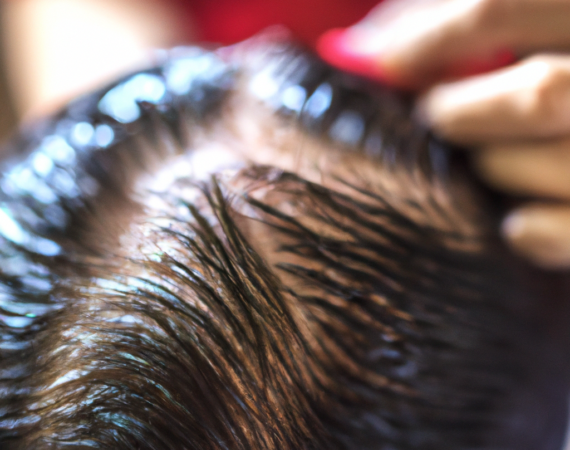Breaking the Stigma: Effective Hair Loss Treatments for Women
In a world where luscious locks are often associated with beauty and femininity, hair loss can be a distressing and emotionally challenging experience for women. While society’s perception of beauty is evolving to become more inclusive, the stigma surrounding female hair loss still persists. It’s crucial to address this stigma and provide women with the information they need to tackle hair loss confidently. In this comprehensive guide, we will explore effective treatments for female hair loss, shedding light on the options available and debunking common myths.
Understanding Female Hair Loss
Before delving into treatment options, it’s essential to understand the various causes of female hair loss. Contrary to popular belief, it’s not just genetics that play a role. Women can experience hair loss due to a variety of factors, including:
Hormonal Changes: Fluctuations in hormones, such as during pregnancy, menopause, or thyroid disorders, can lead to hair thinning.
Stress: High-stress levels can trigger a condition called telogen effluvium, causing excessive shedding.
Nutritional Deficiencies: A lack of essential nutrients, particularly iron and biotin, can contribute to hair loss.
Medical Conditions: Conditions like alopecia areata and polycystic ovary syndrome (PCOS) can result in hair loss.
Hairstyling Practices: Excessive use of hot tools, tight hairstyles (like braids or ponytails), and chemical treatments can damage hair and lead to breakage.
Medications: Some medications, such as those used in chemotherapy or for the female hair loss treatment of certain illnesses, can cause hair loss as a side effect.
Genetics: Family history does play a role, and if you have a family member with a history of hair loss, you may be more predisposed to it.
Breaking the Myths
Before diving into treatment options, let’s dispel some common myths about female hair loss:
Myth 1: Only Men Experience Hair Loss
This is far from the truth. While male pattern baldness is more commonly discussed, women can also suffer from hair loss. It may manifest differently, but it is a real issue for many women.
Myth 2: Hair Loss Is Irreversible
Hair loss can often be treated or managed, especially when addressed early. Don’t assume that you have to accept it as an inevitable part of aging.
Myth 3: Wearing Hats or Caps Causes Hair Loss
Unless a hat or cap is excessively tight and causing friction, it won’t lead to hair loss. In fact, wearing a hat can sometimes protect your hair from damage caused by the sun and pollution.
Myth 4: Hair Loss Is Always Genetic
While genetics can be a factor, it’s not the only cause. As mentioned earlier, hormonal changes, stress, and other factors can contribute to hair loss.
Myth 5: Only Older Women Experience Hair Loss
Hair loss can affect women of all ages, from teenagers to seniors. The causes may vary, but age alone is not the determining factor.
Effective Female Hair Loss Treatments
Now that we’ve debunked some myths, let’s explore effective treatments for female hair loss:
Topical Minoxidil (Rogaine)
Minoxidil is an FDA-approved over-the-counter medication available in various strengths. It’s applied directly to the scalp and can help stimulate hair follicles, promoting hair growth. It’s a popular choice for women experiencing hair thinning.
Prescription Medications
For women with hormonal imbalances contributing to hair loss, prescription medications like spironolactone or finasteride may be recommended. These medications can help regulate hormone levels and slow down hair loss.
Low-Level Laser Therapy (LLLT)
LLLT involves using red-light therapy to stimulate hair follicles and improve hair density. It’s available in various forms, including laser caps and combs. While results may vary, some women have seen positive outcomes with LLLT.
Platelet-Rich Plasma (PRP) Therapy
PRP therapy involves drawing a small amount of the patient’s blood, processing it to concentrate the platelets, and then injecting it into the scalp. This can stimulate hair follicles and encourage hair growth.
Nutritional Supplements
For women with hair loss related to nutritional deficiencies, supplements like biotin, iron, and vitamin D may be recommended. Consult a healthcare professional to determine if you have any deficiencies that need to be addressed.
Hair Care Practices
Proper hair care is essential. Avoid tight hairstyles that pull on the hair, minimize the use of heat styling tools, and opt for gentle, sulfate-free shampoos and conditioners. Treat your hair with care to prevent further damage.
Wigs and Hairpieces
Wigs and hairpieces are excellent options for women who want an immediate solution while waiting for other treatments to take effect. High-quality wigs can look natural and boost confidence.
Hair Transplant Surgery
In severe cases of hair loss, hair transplant surgery may be an option. This procedure involves moving hair follicles from one part of the scalp to another. It’s a more invasive option and should be discussed thoroughly with a healthcare provider.
Lifestyle Changes
Addressing the root causes of hair loss often involves lifestyle changes. Managing stress through relaxation techniques, adopting a balanced diet, and staying hydrated can all contribute to healthier hair.
Consulting a Specialist
Perhaps the most crucial step in addressing female hair loss is consulting a specialist. A dermatologist or trichologist can assess your condition, identify the underlying causes, and recommend the most suitable treatment plan tailored to your needs.
Conclusion
Female hair loss is a common issue that affects women of all ages and backgrounds. It’s essential to break the stigma surrounding it and understand that help is available. Effective treatments for female hair loss exist, ranging from topical solutions to medical interventions, lifestyle changes, and hair care practices. By seeking professional guidance and being proactive, women can regain their confidence and maintain healthy, beautiful hair. Remember, you are not alone in your journey, and there’s no shame in seeking help to address hair loss and embrace your natural beauty.
…
Read More




